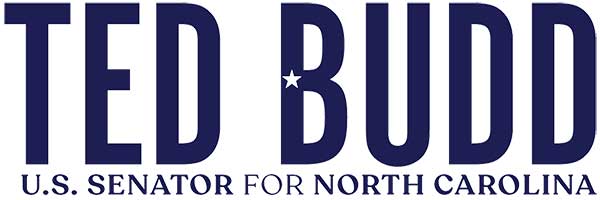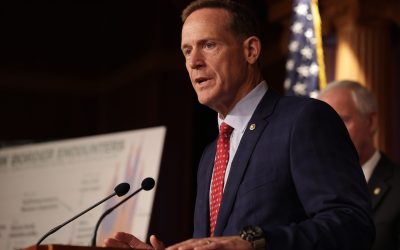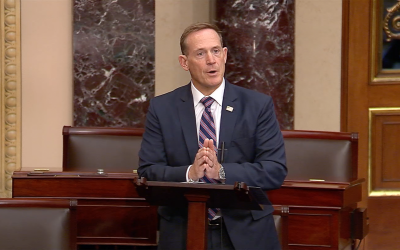Washington, D.C. — Senator Ted Budd (R-NC) has introduced the Encouraging Public Offerings Act. He was joined by Senator Reverend Raphael Warnock (D-GA), Thom Tillis (R-NC), and Chris Van Hollen (D-MD).
The bipartisan legislation encourages capital formation by making initial public offerings (IPOs) more attractive for companies, while encouraging market transparency to better protect investors. The bill would also allow companies of all sizes to confidentially “test the waters” and gauge interest in a potential securities offering prior to a public IPO.
While serving in the U.S. House, Senator Budd introduced this bill in 2017 and 2020. On November 1, 2017, the House passed the bill by a vote of 419-0.
The legislative text of the bill is HERE.
Sen. Budd said in a statement:
“Fundamentally, financial markets connect money to ideas. But the process of taking a company public has become more and more difficult. This bill makes significant changes to securities laws to reduce the risk that companies face when they go public, and ensure that the everyday investor has access to the opportunities that help Americans save and watch their dollars grow.”
Sen. Rev. Warnock said:
“Small businesses are the backbones of our communities. Glad to partner with Senator Budd in leading this bipartisan effort to increase access to more funding for small businesses that are interested in entering the public markets.”
Senator Tillis said:
“This bill encourages economic growth by allowing companies to ‘test the waters’ before offering an IPO. By changing securities law to reduce many of the risks associated with IPOs, this legislation would lead to greater investment opportunities for American companies and everyday investors.”
Senator Van Hollen said:
“Taking a company public can be a complex and costly process. This bipartisan bill will make it easier for emerging companies to chart their path to an IPO and attract the capital they need to continue growing. This is a key way to boost opportunity for startups and small businesses – and the workers they employ – across Maryland and the country.”
###



